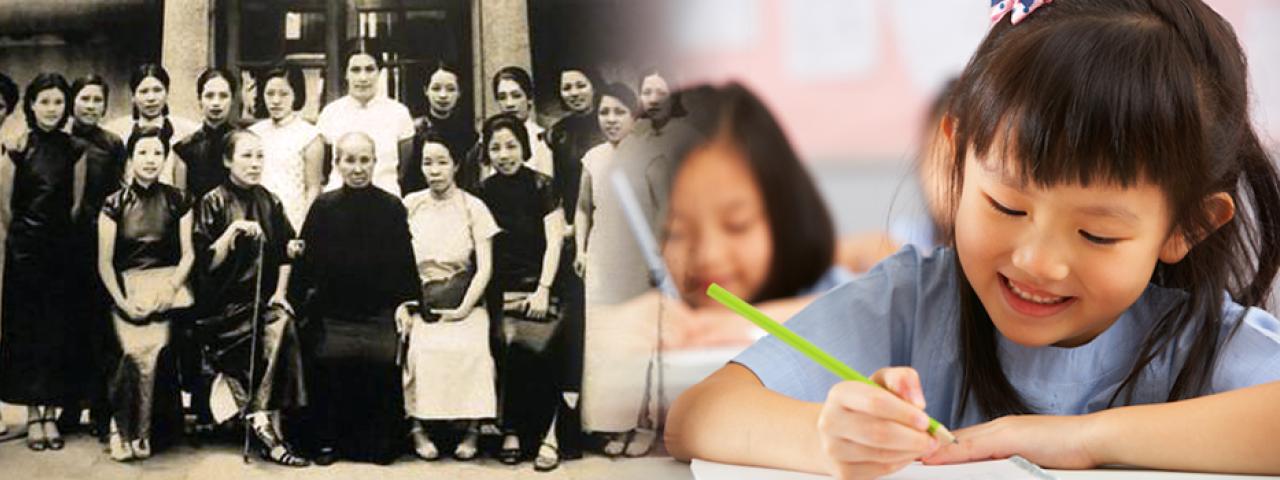
Christina Jenq is a Visiting Assistant Professor of Practice of Economics. She currently teaches courses in Introductory Microeconomics and Political Economy of East Asia at NYU Shanghai. Her dissertation examined the factors behind the rise of female educational attainment in post-1949 China and her more recent research explores labor market gender inequality in urban China.
Here, she talks to the Gazette about some of the misconceptions around Chinese women and difficulties in sourcing reliable survey data.
You describe yourself as ‘born and raised in New Jersey.’ What was the genesis of your research into China?
I kind of fell into it. I already knew I wanted to study developing countries when I was in the Ph.D. program. The fact that China has a huge economy made me want to study it, and it was very exciting for me because I realized that the assumptions that I had about China are not true. The more I learned about China the more I realized I didn’t know a lot about it. I soon realized I couldn’t just study the issues from an economic perspective. I needed to understand its political history as well if I wanted to be an effective researcher about China’s labor markets.
Your research focuses in particular on the economic status of women in mainland China. What do you want people to understand about mainland Chinese women?
That there’s a lot of heterogeneity. “Chinese women” is a big category. If you know anything about China, there are many different social categories: urban, rural, what provinces you’re from, when you were born, where counties you’re from, what specific ethnic minorities you’re from--where you’re from affects so many different outcomes.
I also want to introduce a historical perspective, that’s why I say post 1949. Under Mao, the life expectancy and the educational attainment of women significantly increased, and I don’t think people recognize that accomplishment enough. In addition, because of the impact of Mao’s far-reaching societal reforms, the Han Chinese women in mainland China have a different sense of gender roles than those who did not have to go through those reforms, such as ethnic minorities. So I think there’s some interesting evidence that what Mao did substantially changed gender roles in society, significantly.
In addition, Han Chinese women in mainland China have a different economic history than Han Chinese women in other areas of Asia, so you’re going to see different gender roles and different types of inequality happening. If you understand the differences in economic history, you’d maybe want to compare Han Chinese women with Eastern European women.
What are some of the challenges in your research?
I’m trying to push back against the simplistic narratives about gender inequality in China disseminated by English language media by highlighting the many nuances to consider when talking about this idea of ‘Chinese women’ and gender inequality in China.
The observations I am making are from large sets based on census data and household surveys conducted in China. For example, a project I’m working on uses an employer-employee survey in Guangdong, a province with a unique economic history, and I’m finding interesting patterns in the gender wage gap across ownership. I’m using methods from econometrics to be able to show some cause and effects.
The most difficult thing about my research is finding good data. I wrote a working paper about how the China Population Census has become more biased over time since 1982. Once I realized that, I put in a lot of extra work to be able to use the data properly because I found that The Statistics Bureau was not able to accurately count their population as people started migrating. The hard part is being able to understand and trust the reliability of the survey data that I’m using.
Why is new analysis of this data important?
There are a lot of incentives to obscure nuance and subtlety in any country. It’s very important for there to be researchers who are very concerned about getting the research right and communicating honestly to everybody.
I feel that this research allows me to educate my academic friends and peers and my own social network about what I’m experiencing out here--hopefully this is for the public good, to be able to share with a Chinese audience the results of my research for a better understanding of their own history and what is going on in their society. I want to encourage an interpretation of these findings through an economic framework when observing gender and inequality in China, expecting of course that I will be going against some preconceived notions. I encourage people to talk to me and ask questions and email me with their thoughts so that I can.
Professor Jenq will be presenting at the NYU Shanghai Faculty Lunch Speaker Series on Thursday, November 17, where she will give an overview of the socioeconomic status of women in China since 1949, drawing from her current research and dissertation findings.

